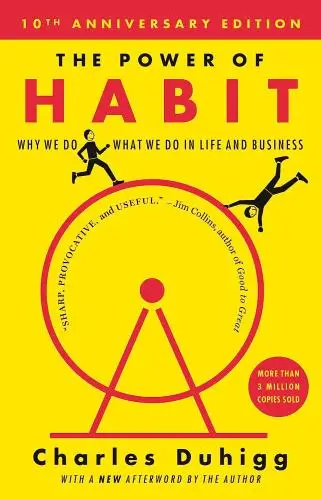
The Power of Habit
Why We Do What We Do in Life and Business
What's it about?
The Power of Habit by Charles Duhigg explores the science behind why habits exist and how they can be changed. Duhigg delves into the neurological patterns that shape our habits, and how understanding these patterns can help us transform our lives. The book provides real-life examples of individuals, organizations, and societies that have successfully changed their habits, offering practical strategies for readers to do the same.
About the Author
Charles Duhigg is a Pulitzer Prize-winning journalist and author known for his insightful explorations of human behavior and productivity. His best-selling book, "The Power of Habit," delves into the science of habit formation and how it impacts our lives. Duhigg's writing style is engaging and accessible, with a talent for weaving together captivating narratives and research-based insights. He offers a fresh perspective on the power of habits, the psychology of decision-making, and the potential for personal and professional transformation.
8 Key Ideas of The Power of Habit
- How Habits Work
- How to Create New Habits
- The Golden Rule of Habit Change
- Keystone Habits
- When Willpower Becomes Automatic
- How Leaders Create Habits Through Accident and Design
- When Companies Predict (& Manipulate) Habits
- The Neurology of Free Will
In our daily lives, habits play a pivotal role, often operating beneath the threshold of our conscious awareness. The story of Eugene Pauly, a man who retained his ability to form habits despite severe memory impairment, offers profound insights into how these processes are embedded within our brains. This narrative isn't just about overcoming adversity; it's a window into understanding the habit loop, a fundamental framework that shapes human behavior.
The Habit Loop Unveiled
The habit loop is an elegant yet simple mechanism consisting of three key elements: cue, routine, and reward. This trio works in concert to create automatic behaviors that reside in the basal ganglia—a part of the brain integral for processing emotions, memories, and pattern recognition.
- Cue: A trigger that tells your brain to go into automatic mode and which habit to use.
- Routine: The behavior itself which can be physical or mental.
- Reward: This helps your brain figure out if this particular loop is worth remembering for future use.
Understanding this cycle not only demystifies how habits form but also reveals why they're so powerful—and sometimes resistant to change.
The Power and Peril of Automation
Habits allow us to save energy by automating repetitive tasks—imagine having to consciously think through every step involved in brushing your teeth each morning! However, this efficiency comes with its own set of challenges. Not all automated behaviors contribute positively to our well-being; some can detract from it significantly. Recognizing when automation serves us—and when it doesn’t—is crucial.
Moreover, cases like H.M., another individual with significant memory impairments due to damage in his basal ganglia further illustrate how delicate yet impactful these neural pathways are on our capacity for new habit formation and execution of routine tasks.
Tactics
- Identify Cues for Undesirable Habits: Recognize triggers that initiate unwanted behaviors such as snacking or procrastination; once identified, replace these cues with healthier alternatives.
- Modify Routines Strategically: Introduce small changes gradually into existing routines to break undesirable habits; establish new behaviors aligned with desired outcomes.
- Reinforce Positive Rewards: Associate positive reinforcements with desired behaviors; celebrate small victories along your journey towards forming healthier habits.
- Create Visual Reminders: Use visual aids like sticky notes or digital reminders strategically placed around your environment as prompts for engaging in new activities or breaking old patterns.
- Establish Routine Patterns: Develop consistent daily schedules incorporating healthy practices such as exercise or mindfulness exercises; repetition helps solidify new habitual behaviors over time.
- Seek Social Support : Share your goals with friends or family members who can provide encouragement and accountability; involve others in your journey towards building better habits for added motivation.
Key Examples/Data
- Eugene's Memory Loss and Recovery: Eugene Pauly, known as E.P., suffered from viral encephalitis, which damaged a part of his brain responsible for memory. Despite severe memory loss, he could form new habits and routines. His brain scans showed similarities to H.M., a famous patient with memory loss. Eugene's ability to learn new habits without remembering the lessons revolutionized the understanding of how habits function.
- Basal Ganglia and Habit Formation: MIT researchers studied the basal ganglia, an ancient part of the brain, to understand habit formation. Through experiments with rats in mazes, they discovered that habits are stored in the basal ganglia, allowing routines to become automatic over time. The habit loop consists of a cue, routine, and reward, with the brain gradually reducing activity as habits become ingrained.
- Delicate Nature of Habits: Habits are powerful yet delicate. They can emerge without conscious awareness and influence behavior significantly. Researchers found that habits can be changed by manipulating cues and rewards. Habits are so ingrained that they can override common sense, as seen in experiments with mice and fast-food consumption.
- Eugene's Habits and Health: Despite severe memory loss, Eugene formed new habits, impacting his daily life. His wife, Beverly, used cues to modify his routines, improving his diet. However, as Eugene aged, his habits led to health issues like sedentary behavior and poor dietary choices. Even in the face of health challenges, Eugene's habits persisted, showcasing the enduring power of ingrained routines.
- Eugene's Legacy: Eugene's contribution to science, particularly in understanding habit formation despite memory loss, was significant. His brain scans and experiments with forming new habits without memory recall advanced the understanding of how habits influence behavior. Eugene's life exemplified the intricate interplay between memory, habits, and daily routines.
Quotes
- "Habits are powerful, but delicate. They can emerge outside our consciousness, or can be deliberately designed. They often occur without our permission, but can be reshaped by fiddling with their parts."
- "The brain has this amazing ability to find happiness even when the memories of it are gone."
- "Habits never really disappear. They're encoded into the structures of our brain, and that's a huge advantage for us."
- "The habit loop consists of a cue, routine, and reward, with the brain gradually reducing activity as habits become ingrained."
- "Habits are so strong, in fact, that they cause our brains to cling to them at the exclusion of all else, including common sense."
- "He told me once, pretty soon after we got married, that he wanted to do something important with his life, something that mattered. And he did. He just never remembered any of it."
The Power of Habit Summary: Common Questions
Experience Personalized Book Summaries, Today!
Discover a new way to gain knowledge, and save time.
Sign up for our 7-day trial now.
No Credit Card Needed

Similar Books
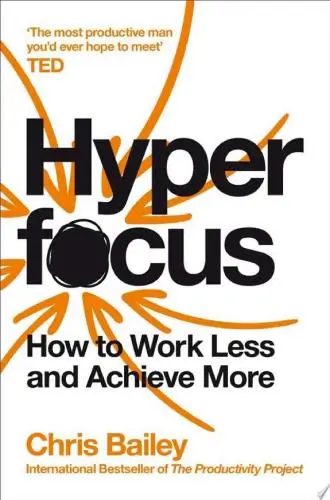
Hyperfocus
Chris Bailey
The Miracle Morning
Hal Elrod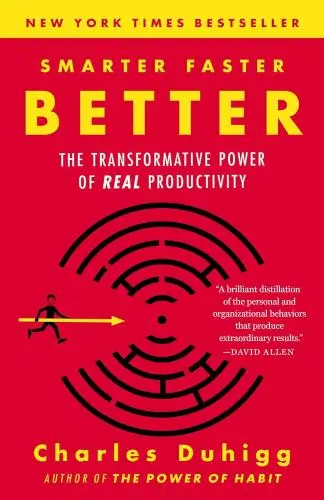
Smarter Faster Better
Charles Duhigg
Refuse to Choose!
Barbara Sher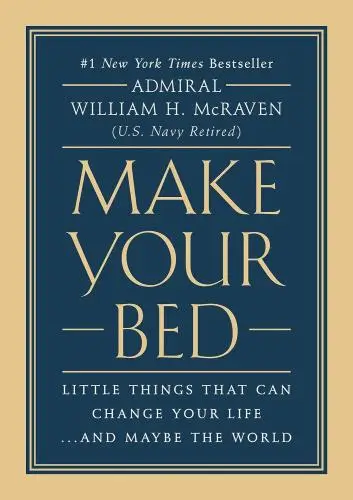
Make Your Bed
William H. McRaven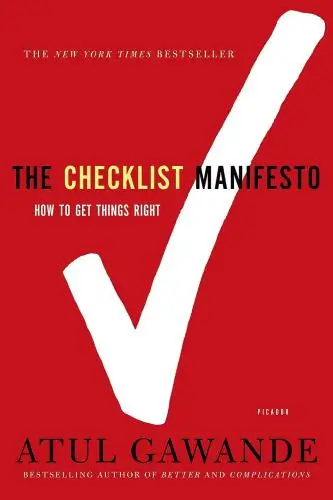
The Checklist Manifesto
Atul Gawande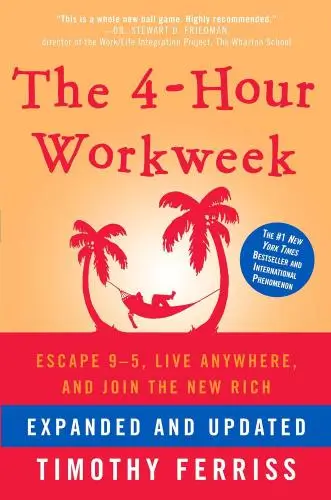
The 4-Hour Workweek
Timothy Ferriss
The Life-Changing Magic of Tidying Up
Marie Kondō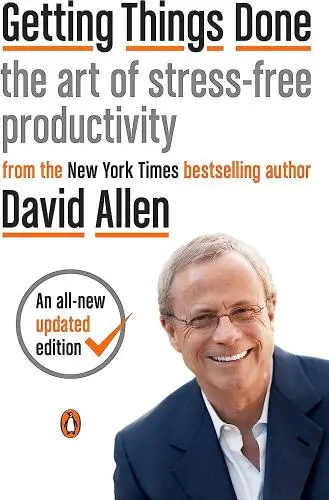
Getting Things Done
David Allen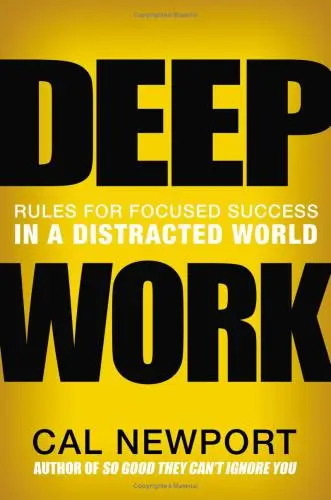
Deep Work
Cal NewportTrending Summaries

Peak
Anders Ericsson
Never Split the Difference
Chris Voss
Smart Brevity
Jim VandeHei
The Psychology of Money
Morgan Housel
The First 90 Days
Michael D. Watkins
Atomic Habits
James Clear
Thinking, Fast and Slow
Daniel Kahneman
The Body Keeps the Score
Bessel van der Kolk M.D.
The Power of Regret
Daniel H. Pink
The Compound Effect
Darren HardyNew Books

Forex Trading QuickStart Guide
Troy Noonan
Comprehensive Casebook of Cognitive Therapy
Frank M. Dattilio
The White Night of St. Petersburg
Michel (Prince of Greece)
Demystifying Climate Models
Andrew Gettelman
The Hobbit
J.R.R. Tolkien
The Decision Book
Mikael Krogerus
The Decision Book: 50 Models for Strategic Thinking
Mikael Krogerus
Fichte
Johann Gottlieb Fichte
Do No Harm
Henry Marsh
